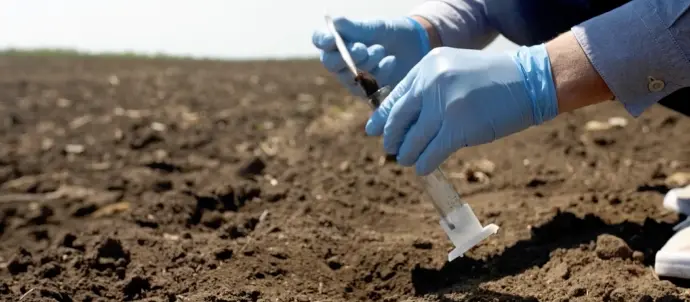Soil testing is a crucial step in agricultural management that helps farmers understand the nutrient composition, pH levels, and overall health of their soil. This process not only enhances crop yields but also promotes sustainable farming practices. Here’s a comprehensive look at the importance of soil testing and how it can benefit farmers.
Why is Soil Testing Important?
- Nutrient Management: Soil tests reveal the levels of essential nutrients like nitrogen, phosphorus, and potassium. This information helps farmers apply fertilizers more effectively, ensuring that crops receive the right amount of nutrients.
- pH Balance: The pH level of soil affects nutrient availability. Soil testing can indicate whether the soil is acidic or alkaline, allowing farmers to make necessary amendments to optimize crop growth.
- Preventing Over-Fertilization: By understanding the existing nutrient levels, farmers can avoid the unnecessary application of fertilizers, saving money and reducing environmental impact.
- Crop Selection: Soil testing can guide farmers in choosing the right crops that are best suited for their soil type and conditions, leading to better yields.
- Sustainable Practices: Regular soil testing promotes sustainable agricultural practices by encouraging the use of organic amendments and reducing reliance on chemical fertilizers.
How to Conduct Soil Testing?
- Collect Samples: Farmers should collect soil samples from various locations in their fields to get an accurate representation of the soil health.
- Send to Laboratory: The samples should be sent to a certified laboratory for analysis.
- Interpret Results: Once the results are received, farmers should understand the implications for their farming practices. Consulting with agricultural experts can be beneficial.
- Implement Recommendations: Based on the test results, farmers can adjust their fertilization and crop management strategies accordingly.

Conclusion
Soil testing is an essential practice for farmers aiming to enhance crop productivity and sustainability. By understanding the health of their soil, farmers can make informed decisions that lead to better yields, improved soil health, and reduced environmental impact.
For more detailed insights on soil testing and its benefits, visit Agriculture and Food Systems Institute.
By integrating soil testing into their agricultural practices, farmers can unlock the potential of their land and contribute to a more sustainable future for agriculture.
Start writing here...
"उपजाऊ मिट्टी के रहस्यों को उजागर करना: बेहतर फसल उत्पादन के लिए"